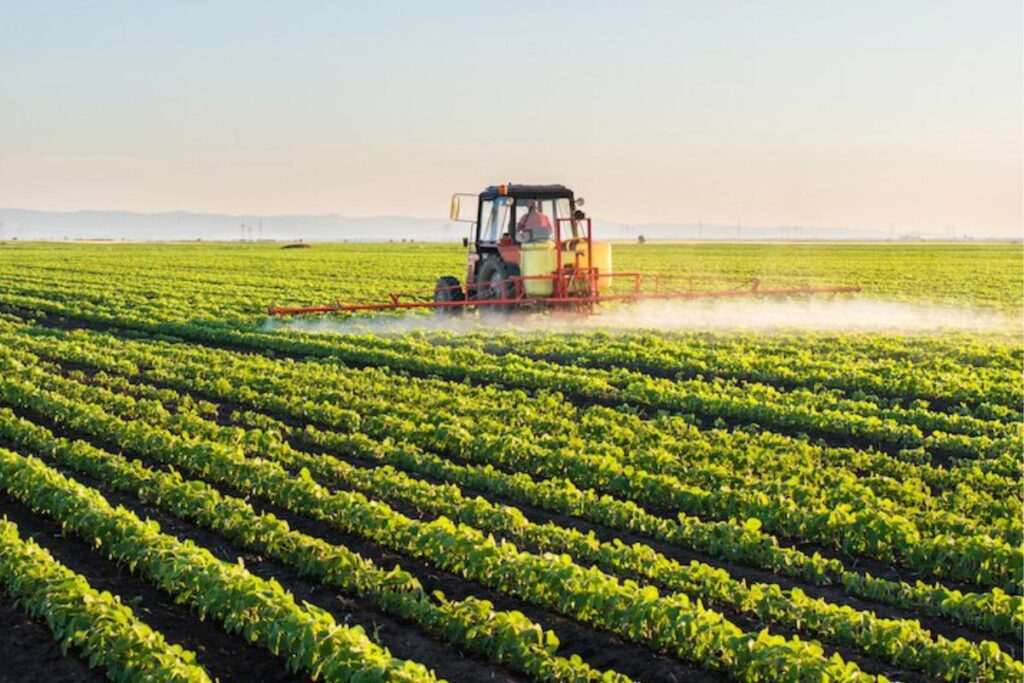By Christopher Okpoko
The second goal of United Nations sustainable development agenda aims to ensure that everyone everywhere has enough good-quality food to lead a healthy life. Achieving this Goal will require better access to food and the widespread promotion of sustainable agriculture. This entails improving the productivity and incomes of small-scale farmers by promoting equal access to land, technology and markets, sustainable food production systems and resilient agricultural practices. It also requires increased investments through international cooperation to bolster the productive capacity of agriculture in developing countries.
However, the main problem of agricultural production and the achievement of food security for the population of Nigeria is the increase in productivity, which is still significantly lower than its potential. According to experts in agriculture, productivity directly depends on the volume of fertilizers containing additional nutrients applied per one hectare of fertilized area. Nitrogen, potassium and phosphate fertilizers are used. Organic fertilizers are rarely used in Nigeria, since the areas of agriculture and livestock breeding practically do not coincide. In Nigeria, the use of fertilizers is modest, and this significantly affects the productivity of crops and, accordingly, the gross value of crop production, agricultural value added and other important economic indicators. Also, the state of Nigerian animal husbandry is also inadequate for the country’s self-sufficiency in its products. Nigeria has significant livestock resources, including a large number of cattle, sheep, goats, pigs and poultry. However, significant livestock resources do not solve the problem of low animal protein intake. Livestock industry is at great risk: in recent decades, epidemics have repeatedly occurred among animals and poultry, and their number has declined sharply. Viruses of highly pathogenic bird flu, horse plague, African swine fever, etc., the spread of the tsetse fly and the low level of veterinary services for animals not only make it difficult to maintain the livestock, but also reduce the export of livestock products to neighboring countries. The extremely low productivity of animals is noteworthy. The sustainable development of agriculture, including animal husbandry, is also hindered by the emergence of conflict situations. In recent time, conflicts between farmers and herders have intensified due to the constant migration of herds. Similarly, the bulk of agricultural products are produced on small farms, and the financial condition of most small farms does not allow the use of not only the necessary amount of mineral fertilizers, but also modern technology. The use of obsolete tools makes production more labor-intensive.
Furthermore, the result of a survey conducted in 2013 by researchers in the Department of Social Sciences at the University of Benin indicated several reasons for the poor food supply, among them – the lack of storage facilities and lack of funds for their construction. As one of the main reasons limiting physical access to food, 82 percent of the respondents called poor, nearly impassable roads. Only 36 percent of farmers can deliver produce to the point of sale using motorcycles, bicycles and carts. Poverty of farmers also places serious limitations on their ability to improve the situation. Finally, an unexpected reason for the inhibition of agricultural development was the lack of labor.
Against the above background, a United Nations report in January 2023 projected that about twenty-five million Nigerians were at high risk of food insecurity this year; which implied that they would not be able to afford enough nourishing food on daily basis. And according to the latest report (June 2023) of the National Bureau of Statistics (NBS), headline inflation rate stood at 22.79 percent with the food component being the key driver. Thus, with inflation at more than 20 percent for over a year, people are struggling to cope with the rising cost of living.
Consequently, in response to the nationwide rising cost of food items and the hardship which worsened with the removal of fuel subsidy President Bola Tinubu recently declared a state of emergency on food security. The highlights of the action plan include:
- immediate release of fertilizers and grains to farmers and households to mitigate the effects of the fuel subsidy removal;
- all matters relating to food and water availability and affordability, as essential livelihood items, be included within the purview of the National Security Council;
- a number of initiatives would be deployed in the immediate, medium and long terms, with the goals to be achieved already marked;
- putting an end to the age-long and problematic nomadic animal husbandry, which would be replaced with government-managed ranching;
- an urgent synergy between the Ministry of Agriculture and the Ministry of Water Resources to ensure adequate irrigation of farmlands and to guarantee that food is produced all-year round;
- .creation and support of a National Commodity Board that will review and continuously assess food prices as well as maintain a strategic food reserve that will be used as a price stabilization mechanism for critical grains and other food items. Through this board, government will moderate spikes and dips in food prices;
- the following stakeholders would be on board to support this intervention effort – The National Commodity Exchange (NCX); Seed Companies; National Seed Council and Research institutes; NIRSAL Microfinance Bank; Food Processing/Agriculture Processing associations; private sector holders and Prime Anchors; small holder farmers; crop associations; and fertilizer producers, blenders and suppliers’ associations;
- the security architecture will be engaged to protect the farms and the farmers so that farmers can return to the farmlands without fear of attacks;
- the Central Bank of Nigeria will continue to play a major role of funding the agricultural value chain;
- activation of land banks. There is currently 500,000 hectares of already mapped land that will be used to increase availability of arable land for farming, which will immediately impact food output;
- mechanization and land clearing- The government will also collaborate with mechanization companies to clear more forests and make them available for farming;
- river basins- there are currently 11 rivers basins that will ensure planting of crops during the dry season with irrigation schemes that will guarantee continuous farming production all year round, to stem the seasonal glut and scarcity that we usually experience;
- deployment of concessionary capital/funding to the sector especially towards fertilizer, processing, mechanization, seeds, chemicals, equipment, feed, labour, etc. The concessionary funds will ensure food is always available and affordable thereby having a direct impact on Nigeria’s Human Capital Index (HCI);
- transportation and storage: the government will explore other means of transportation, including rail and water transport, to reduce freight costs and in turn impact the food prices.;
- the government will change the way we have been doing livestock business, away from the archaic method to the modern way acceptable worldwide. Ranches will be established in collaboration with state governments and the federal government will pay for the land.
No doubt, the plan by President Bola Tinubu to execute the state of emergency on food is quite ambitious and its full implantation may place Nigeria among nations that will achieve food security of agenda 2030. However, it may not resolve the immediate need to provide food on the table of her citizenry at affordable prices. Similarly, the current trend of food inflation rate may not abate any time soon until massive supply of basic food items flood the market. Therefore, the feasible solution to immediately ameliorate the current high cost of food is to reopen all the borders and allow food items to be imported until the situation significantly improves and the plan for food security begins to yield the desired dividends.










More Stories
Court orders return of N2.475 bn to Keystone Bank, customer mistakenly linked to Emefiele
Alleged N76bn fraud: Ex-Union Bank ED narrates how he wrote-Off Arik’s $2.3m debt
Naira depreciates to N1,620/$ in parallel market